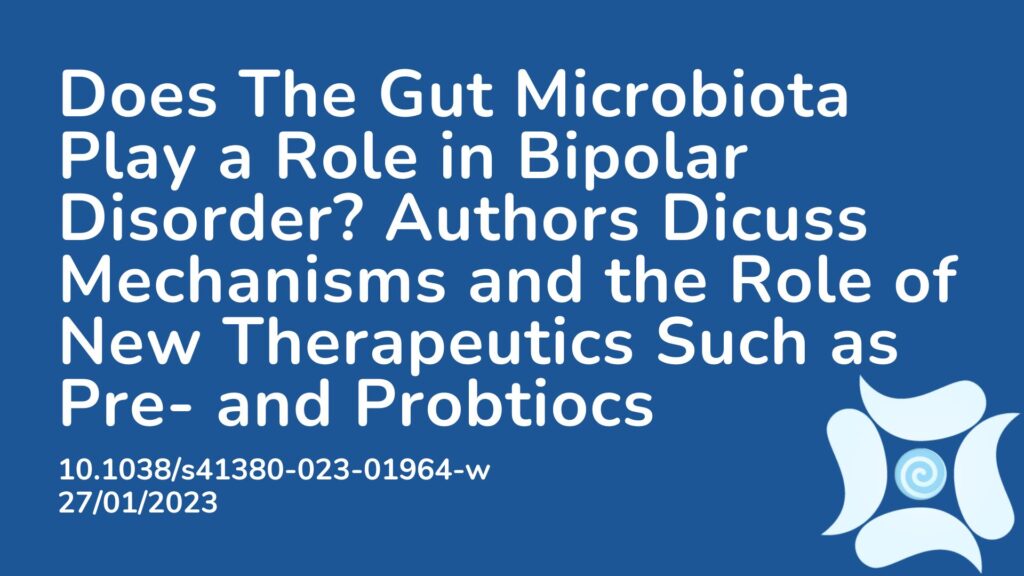Summary:
Bipolar disorder is characterized by episodes of mood fluctuations which can be manic and depressive. Its pathophysiology is not entirely understood, however, the role of the human gut microbiota has gained attention as the gut microbiome has the ability to influence the synthesis of neurons and endocrine function. This paper aims to understand the gut-brain axis and possible therapeutic approaches concerning bipolar disorder, as well as how psychiatric drugs prescribed for bipolar disorder impact the gut microbiota. The authors also discuss new therapeutic approaches such as nutrition and pre- and probiotics.
Abstract:
Bipolar disorders (BD) represent a severe leading disabling mental condition worldwide characterized by episodic and often progressive mood fluctuations with manic and depressive stages. The biological mechanisms underlying the pathophysiology of BD remain incompletely understood, but it seems that there is a complex picture of genetic and environmental factors implicated. Nowadays, gut microbiota is in the spotlight of new research related to this kind of psychiatric disorder, as it can be consistently related to several pathophysiological events observed in BD. In the context of the so-called microbiota–gut–brain (MGB) axis, it is shown to have a strong influence on host neuromodulation and endocrine functions (i.e., controlling the synthesis of neurotransmitters like serotonin or mediating the activation of the hypothalamic–pituitary–adrenal axis), as well as in modulation of host immune responses, critically regulating intestinal, systemic and brain inflammation (neuroinflammation). The present review aims to elucidate pathophysiological mechanisms derived from the MGB axis disruption and possible therapeutic approaches mainly focusing on gut microbiota in the complex network of BD. Understanding the mechanisms of gut microbiota and its bidirectional communication with the immune and other systems can shed light on the discovery of new therapies for improving the clinical management of these patients. Besides, the effect of psychiatric drugs on gut microbiota currently used in BD patients, together with new therapeutical approaches targeting this ecosystem (dietary patterns, probiotics, prebiotics, and other novelties) will also be contemplated.
Article Publication Date: 27/01/2023
DOI: 10.1038/s41380-023-01964-w



